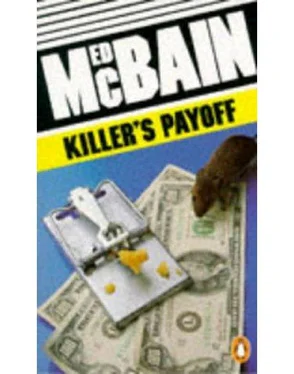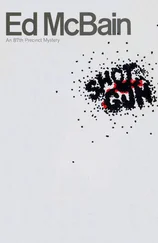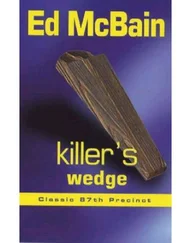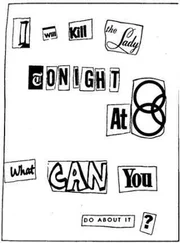McBain, Ed - Killer's Payoff
Здесь есть возможность читать онлайн «McBain, Ed - Killer's Payoff» весь текст электронной книги совершенно бесплатно (целиком полную версию без сокращений). В некоторых случаях можно слушать аудио, скачать через торрент в формате fb2 и присутствует краткое содержание. Жанр: Полицейский детектив, на английском языке. Описание произведения, (предисловие) а так же отзывы посетителей доступны на портале библиотеки ЛибКат.
- Название:Killer's Payoff
- Автор:
- Жанр:
- Год:неизвестен
- ISBN:нет данных
- Рейтинг книги:5 / 5. Голосов: 1
-
Избранное:Добавить в избранное
- Отзывы:
-
Ваша оценка:
- 100
- 1
- 2
- 3
- 4
- 5
Killer's Payoff: краткое содержание, описание и аннотация
Предлагаем к чтению аннотацию, описание, краткое содержание или предисловие (зависит от того, что написал сам автор книги «Killer's Payoff»). Если вы не нашли необходимую информацию о книге — напишите в комментариях, мы постараемся отыскать её.
Killer's Payoff — читать онлайн бесплатно полную книгу (весь текст) целиком
Ниже представлен текст книги, разбитый по страницам. Система сохранения места последней прочитанной страницы, позволяет с удобством читать онлайн бесплатно книгу «Killer's Payoff», без необходимости каждый раз заново искать на чём Вы остановились. Поставьте закладку, и сможете в любой момент перейти на страницу, на которой закончили чтение.
Интервал:
Закладка:
“How do you know he’s skipped town?”
“He’s not around, is he? I’m going to dispossess him, that’s all. I called the building’s lawyer already. We’re going to post a copy of the summons and complaint on the office door. We can stick it there with Scotch tape or with a tack, the lawyer said. That’s called ‘substitute service’ in this state.”
“Will you sue him for the back rent?” Hawes asked.
“How can I get a judgment for the back rent?” Colton asked. “He has to be served papers in person for that and who the hell knows where he is? But I can get a judgment evicting him. Substitute service. That’s what they call it in this state. I hate to do it to Phil, but can I lose revenue? You can bet your life the building doesn’t like to lose revenue.”
“Did Kettering give you any idea he was leaving?” Hawes asked.
“None whatever. How do you like that? Skips town. Doesn’t even have the decency to tell me he doesn’t want the office any more. What’s he hiding from? Is it the police? Is he hiding from you? Is he planning a bank robbery or something? A murder? What? Why does the man suddenly skip town like that? That’s what I’d like to know.”
Carella and Hawes nodded almost simultaneously.
Carella said it for both of them. “That’s what we’d like to know, too,” he said. Then they thanked him and left his office.
There was nothing to do but question the other men who had been on the hunting trip.
They divided the men between them, and then Carella and Hawes split up.
* * *
THE ADVERTISING AGENCY was called the Ruther-Smith Company. It was a going concern, with twenty employees. Frank Ruther was a partner in the firm, and the man who wrote most of the company’s copy.
“I’d rather be writing books,” he told Hawes. “The trouble is, I can’t.”
He was a man in his early forties, with dark hair and brown eyes. He did not dress at all like a Jefferson Avenue advertising man. He dressed, instead, like the stereotyped idea of an author, tweed jacket, soft-collared shirt, quiet tie, dark flannel trousers. Too, like someone’s stereotyped idea of a writer—perhaps his own—he smoked a pipe. He had greeted Hawes cordially and warmly, and they sat now in his tastefully furnished office, talking and smoking.
“My grandfather made a hell of a lot of money,” Ruther said. “He sold pots. He traveled from town to town selling his pots, and pretty soon he could afford to hire people to sell his pots for him. He left a lot of money to my dad.”
“What did your father do?” Hawes asked.
“He parlayed it into even more money. He was a dog fancier. He began importing French poodles. It doesn’t sound as if there could be much money in it, but he had the biggest kennel on Sand’s Spit. Quality dogs, Mr. Hawes. And my dad was a shrewd businessman. When he died, I inherited money earned by two generations of Ruthers.”
“What did you do with it?”
“I wanted to be a writer. I wrote dozens of novels, which I threw into the wastepaper basket. At the same time, I was living big. I’d always lived big when my father was alive, and I saw no reason to stop living big when he died. I went through quite a lot of money. In a little less than twenty years, I spent almost the entire fortune two generations had worked to build. I stopped writing novels when I had about fifteen thousand dollars left. I started this company with Jeff Smith. It’s earning its keep now. I’m beginning to feel as if I’m finally accomplishing something. It’s a bad feeling, Mr. Hawes, when you know you’re not accomplishing anything.”
“I suppose so,” Hawes said.
“A good copywriter could outline the history of my family in three words, if he wanted to. At least, the history of my family until I started this agency—when I was still fooling around writing books.”
“And what are those three words?” Hawes asked.
“My grandfather, my father, and me,” Ruther said. “Three generations and three occupations. The three words? A peddler, a poodler, and a piddler. I was the piddler.”
Hawes smiled. He had the feeling that Ruther had used these words many times before, and that his seeming originality was not at all spontaneous. He felt, nonetheless, that it was clever—and so he smiled.
“I’m not a piddler any more, Mr. Hawes,” Ruther said. “I write copy for my firm now. I write damned good copy. It sells the product. Jeff and I are making money at last. Not money I inherited. Money I worked for. Money I worked damned hard for. It’s a good feeling. It’s the difference between being a piddler—and a man.”
“I see,” Hawes said.
“I’m sorry,” Ruther said graciously. “I didn’t mean to take up your time with a family portrait.”
“It was very interesting,” Hawes said.
“But what did you want to know?”
“What do you know about Phil Kettering?”
“Kettering?” Ruther’s brow creased. He looked at Hawes in puzzlement “I’m sorry. I don’t think I know the name.”
“Phil Kettering,” Hawes repeated.
“Should I know him?”
“Yes.”
Ruther smiled. “Can you give me a clue?”
“Kukabonga Lodge,” Hawes said.
“Oh! Oh, for God’s sake, yes. Of course. Forgive me, please. I’m not good on names. Especially at that time…well, I was in something of a fog. I’m afraid nothing made a very clear impression on me.”
“What kind of a fog?”
“My wife and I were having trouble.”
“What kind of trouble?”
“Personal trouble. We thought we might split up.”
“Have you?”
“No. We’ve worked it out. Everything is fine now.”
“About Kettering. When did he leave Kukabonga?”
“Early one morning, I forget which day it was. He said he wanted to do a little shooting before hitting the road. He had his breakfast, and then left.”
“Anybody go with him?”
“No, he went alone.”
“Then what?”
“Well, we had our breakfast, and then we went out.”
“Who?”
“Me and the two other fellows who were there. I don’t remember their names.”
“There were three other fellows, weren’t there?”
“Kramer, you mean? Yes, he was the third fellow. But he didn’t come with us that morning.”
“Why not?”
“I’d had an argument with him the day before.”
“What about?”
“Clams.”
“You remember Kramer’s name, don’t you?”
“Yes. Because we had the argument.”
“Did you see anything about him in the papers recently?”
“No. Why?”
“He’s dead.”
Ruther was silent for a moment. “I’m sorry to hear that,” he said at last.
“Are you?”
“Yes. We’d had an argument, true, but that was a long time ago, and I was touchier than I should have been. Because of the trouble Liz and I were having. I certainly wouldn’t wish his death.” Ruther paused. “How did he die?”
“He was shot.”
“You mean accidentally?”
“Purposely.”
“Oh.” Ruther paused again. “You mean he was murdered?”
“That’s what I mean.”
“Who did it?”
“We don’t know. Have you seen Kettering since last year?”
“No. Why should I? He was a stranger. I only met him at the lodge.”
“Then you wouldn’t know where he is now?”
“No, of course not. Did he have something to do with Kramer’s death?”
“We understand Kettering took your part in the argument and that he and Kramer almost came to blows. Is that right?”
“Yes, that’s right. But that was a long time ago. You can’t believe he’d harbor a grudge all this time.”
“I don’t know what to believe, Mr. Ruther. Can you remember the names of the other two men who were on the trip?”
Читать дальшеИнтервал:
Закладка:
Похожие книги на «Killer's Payoff»
Представляем Вашему вниманию похожие книги на «Killer's Payoff» списком для выбора. Мы отобрали схожую по названию и смыслу литературу в надежде предоставить читателям больше вариантов отыскать новые, интересные, ещё непрочитанные произведения.
Обсуждение, отзывы о книге «Killer's Payoff» и просто собственные мнения читателей. Оставьте ваши комментарии, напишите, что Вы думаете о произведении, его смысле или главных героях. Укажите что конкретно понравилось, а что нет, и почему Вы так считаете.












